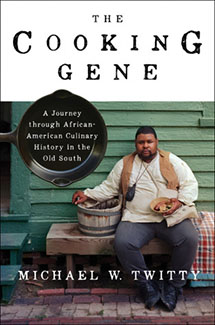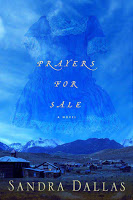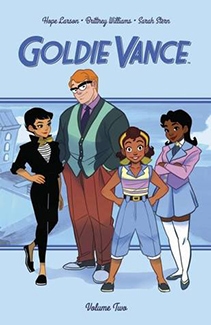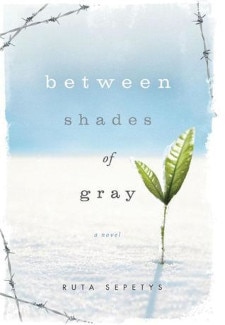I have affiliate relationships with Bookshop.org and Malaprop's Bookstore in beautiful Asheville, NC. I will earn a small commission at no additional cost to you if you purchase merchandise through links on my site. Read more on my affiliate page.

Title: The Cooking Gene: A Journey Through African American Culinary History in the Old South
Author: Michael W. Twitty
Genre: History, Memoir, Southern Literature, Cookbook
Audience: Adult
My Review:
This book was an obvious labor of love for Mr. Twitty and his passions shine through the pages. Unfortunately, I don’t particularly enjoy cooking or genealogy so the book fell a bit flat for me.
I glanced through quite a few reviews on GoodReads before I decided to check this out and saw others frequently complaining that the text is disjointed and hard to follow. Deciding that “forewarned is forearmed,” I jumped in. I was still a bit lost. I know that the author had a lot of valid points and connections to make but I had a hard time following his train of thought. Part of the problem is that he writes in a stream-of-consciousness style and I rarely do well with that.
“My aim has been to give a sense of the bric-a-brac mosaic that is the average African American’s experience when he or she attempts to look back to recapture our cultural and culinary identities obscured by the consequences of racial chattel slavery. If it were possible to give a linear, orderly, soup to nuts version of my story or any of my family’s without resorting to genre gymnastics, I would have considered it.”
That’s a fair point.
But I also lack much of my own knowledge base to draw from. As Mr. Twitty writes in his Afterward:
“It is really difficult to write outside of your own headspace and to remember that your reader may, in many cases, be unfamiliar with elements of the subject matter.”
Yes. That was exactly my problem.
There were sections that were very powerful to me. The author works (worked?) as a historical interpreter, preparing food at plantations in the ways that his enslaved ancestors would have. What an emotional calling that must be.
“I would have to learn to maneuver the cooking utensils of old and learn how to keep time as I cooked. I lost arm hair and eyebrows, a little blood here and there; I was scalded and branded, burned and seared. These are the marks of my tribe.”
Wow. He also goes out to a field and picks cotton while listening to slave spirituals, watches molasses being made, tracks down long-forgotten cemeteries, and generally lays his hands on as many pieces of this puzzle of a book as he can. I give him huge points for that. I personally wouldn’t want anything to do with cotton in his shoes but he wants to experience the reality of his forebears.
Sometimes Mr. Twitty writes about terrible things that I would know if I took time to think about them, but I haven’t from my place of White privilege. When he explores his European ancestors, he blatantly says that White slave owners raped his Black ancestresses. Did I understand that somewhere in my brain? Yes. Has anyone really presented it to me in a way that opened my eyes like that? No. What an unbearable thing to incorporate into your family history. But it’s an undeniable reality.
Readers with a stronger background in culinary history and/or genealogy will most likely follow the labyrinthine thread of this narrative much better than I did. I personally lost my way pretty early on and unfortunately took away very little from the book.
My Synopsis:
Michael W. Twitty blends his passions for cooking and geneaology in The Cooking Gene. He traces his own ancestry as far as he can, then relies on genetic testing to give him a better idea of where his ancestors came from. He also outlines the ways that African slaves fused their own cooking traditions with New World foods to create the Southern food that’s beloved by so many today.
Reading Challenge:
Purchase:
Buy The Cooking Gene: A Journey Through African American Culinary History in the Old South from Malaprop’s Bookstore in Asheville, NC or









7 Comments
I really loved this one but I can see why it wouldn’t be for everyone.
I’m glad you liked it! I know there’s a perfect audience for this book, I’m just sorry that audience doesn’t include me. I admire the author’s passion and research though.
I’m sorry it wasn’t successful for you but thanks for sharing your thoughts.
I guess not every book we choose can be a great fit for us. Oh well.
This sounds like something I need to read. I’m not big into genealogy (though family member are) but I do love cooking. I can’t say that I have great knowledge of it, but I have enjoyed other cooking-related memoirs, so this one would likely be a good fit. The quotes you pulled just got me more interested!
I hope you like it when/if you read it! I try hard to be fair in my reviews and specify an audience the book might appeal to even if it didn’t work for me personally, so I’m glad I piqued your interest!
It might be a while… I have been a very easily distracted reader lately, and I’m never sure how long it will take me to pick up a book. But I do want to check this one out!